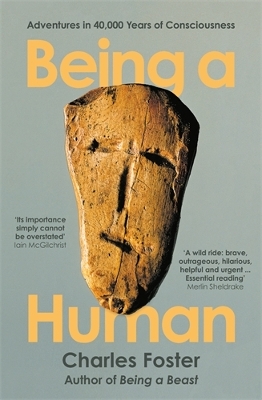Reviewed by annieb123 on
Being a Human is a meandering nearly stream-of-consciousness look at human development over the last forty thousand (or so) years and examining three ages of human-ness along the way. Released 31st Aug 2021 by Macmillan on their Metropolitan imprint, it's 400 pages and is available in hardcover, audio, and ebook formats. It's worth noting that the ebook format has a handy interactive table of contents as well as interactive links throughout. I've really become enamored of ebooks with interactive formats lately; it makes it so easy to find information with the search function.
This is an eccentric book; beautifully written and oddly moving in a lot of places. The prose is a lot more prose-like than most nonfiction books I've encountered and I enjoyed the cadence of the author's voice very much. I can imagine that he would be outside the usual standard-operating-fare as a lecturer, and I envy his students. He manages to traverse the metaphorical Strait of Messina without straying into "aw, shucks" self deprecation or pedagogical pomposity, no mean feat.
The book covers a massive amount of time (obviously) and is arranged more or less chronologically: Upper Paleolithic (in four parts), Neolithic (ditto), and the current age looking toward the future. I found myself continually distracted during the reading by the enlightening and copious annotations and notes. After the first bit, I decided to ignore the notes and links and just read the information, making notes of the bits I really wanted to delve into more deeply later. That seemed to really help with continuity and flow and reading enjoyment.
As stated, the book is copiously annotated and the chapter notes provide a wealth of further reading for readers wishing to deep dive in the material. The bibliography is massive (though, as the author says, impossibly abbreviated since a real bibliography would include everything ever written by or about human beings).
I enjoyed this read immensely. I would heartily recommend it for lovers of science philosophy, anthropology, but maybe not so much for readers looking for "just the facts, Ma'am". This has been one of my better nonfiction reads for 2021.
Five stars.
Disclosure: I received an ARC at no cost from the author/publisher for review purposes.
Reading updates
- Started reading
- 1 September, 2021: Finished reading
- 1 September, 2021: Reviewed
